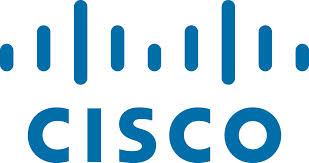Thursday, February 2, 2006
RIM Speaks/Deloitte Looks Into Telecom's Future
It's been a busy week for local events. Yesterday was BCE's annual review day, and today I attended a really good forum about the outlook for communications technologies in 2006.
Today's event was sponsored by the global management consulting firm Deloitte, and I got introduced to this from a good friend who's with their Business Valuations practice (thanks Steve!). They're running a series of these events, titled "Predictions 2006", and today's was a review of what their research is finding in terms the big trends driving communications technologies.
To sweeten the mix, the guest speaker was Jim Balsillie, Chairman and Co-CEO of RIM, fresh off some good news (finally) in their agonizing battle with NTP.
The trends analysis presentation was made by Paul Lee, Deloitte's Director of Research. I thought the caliber of his work was very high, and his insights were quite relevant to the IP space. All told, he's got 30 predictions for 2006 in his research oeuvre - 10 each for technology, media, and telecom.
He could only focus on 3 predictions/outlooks in the presentation, and I wholeheartedly agree with them all. Here's a summary...
1. Search technologies are becoming a key tool as we rush to digitize everything. The mass market doesn't really understand search tools to get the most out of them, and there's room for tools - both free and paid - that go beyond Google's context-based search engines.
2. Technology humanizes technology. As the price of memory falls, the scope of applications to make technology more user-friendly and valuable to us gets bigger. He cited the automobile industry as an example where cars continue to add computer and memory-based features, such as distance monitoring and voice control. No doubt these things make for better cars, and a better driving experience.
3. Life changing technologies are the real winners. Paul noted that when companies or their products become verbs - Skype, Google, eBay - you know they're life-changing. These are true drivers of change in our behavior, and that's what creates market leaders. The implication is that - like the pharmaceutical sector - R&D costs in tech are huge, and the stakes are high for picking the right technologies to invest in.
Paul made many other cogent observations, but for me, his final thoughts resonated the most. His main wrapup takeaway was the message that carriers need to focus more on margins than speed. Amen.
He rightly pointed out that many of the apps that make money for carriers require very little bandwidth - SMS, voice, mobile email, etc. The race to build fatter pipes seems to be singularly focused on upping the ante for more megabits. No doubt consumers will eat this up, and like moths to a flame, they will never tire of downloading movies, music, videos, etc. However, the carriers see relatively little margin from these when the dust settles. Most of it goes to the content providers, the retailers, and even the end-user device manufacturers.
To make this work for the carriers, Paul is of the mind that they are justified in somehow having the content providers bear some of the cost of building all this capacity for consumers. Well, economically, he's correct, but this sure gets us into Ed Whitacre territory, which was not in scope of today's discussion. We may have to pick that one up offline.
After digesting Paul's presentation, things moved on to RIM. Jim Balsillie provided a very good overview of where RIM is going, and what has made it so successful. RIM has built a great brand, and Jim pointed out how RIM is rated as one of the top 3 tech brands, right up there with Apple and Google. Pretty nice company, given that RIM only has 5 million or so subscribers. It's a great business model, and I can never get over how strong the brand has become with such a relatively small user base. And Canadian to boot!
Jim talked a fair bit about how RIM fits into the enterprise workspace, and how well the Blackberry addresses the increased need for real time communications. He actually spent very little time talking about the Blackberry as a device. The strongest message for me was his focus on what RIM's real value proposition is - it's a "secure pipe to move packets", and the Blackberry is just a "presentation terminal".
I hadn't really thought about it that way before, but it's clear to me now that the security of RIM's network is what provides CIOs with the greatest comfort level. I get it - I think he's right. Security is a big deal these days, especially for IP, and secure systems or networks are the holy grail for enterprises.
My trusty travel companion, the Nokia N90 was put to work again. These are the best of the bunch...
Q&A panel - from left to right, Paul Lee, Jim Balsillie, and John Ruffolo, who leads Deloitte's Toronto tech/telecom/media practice.
Jim Balsillie - a bit grainy, sorry - this setting is not a strong suit for the N90 I'm afraid
Jim and I shamelessly plugging RIM - why not?
Today's event was sponsored by the global management consulting firm Deloitte, and I got introduced to this from a good friend who's with their Business Valuations practice (thanks Steve!). They're running a series of these events, titled "Predictions 2006", and today's was a review of what their research is finding in terms the big trends driving communications technologies.
To sweeten the mix, the guest speaker was Jim Balsillie, Chairman and Co-CEO of RIM, fresh off some good news (finally) in their agonizing battle with NTP.
The trends analysis presentation was made by Paul Lee, Deloitte's Director of Research. I thought the caliber of his work was very high, and his insights were quite relevant to the IP space. All told, he's got 30 predictions for 2006 in his research oeuvre - 10 each for technology, media, and telecom.
He could only focus on 3 predictions/outlooks in the presentation, and I wholeheartedly agree with them all. Here's a summary...
1. Search technologies are becoming a key tool as we rush to digitize everything. The mass market doesn't really understand search tools to get the most out of them, and there's room for tools - both free and paid - that go beyond Google's context-based search engines.
2. Technology humanizes technology. As the price of memory falls, the scope of applications to make technology more user-friendly and valuable to us gets bigger. He cited the automobile industry as an example where cars continue to add computer and memory-based features, such as distance monitoring and voice control. No doubt these things make for better cars, and a better driving experience.
3. Life changing technologies are the real winners. Paul noted that when companies or their products become verbs - Skype, Google, eBay - you know they're life-changing. These are true drivers of change in our behavior, and that's what creates market leaders. The implication is that - like the pharmaceutical sector - R&D costs in tech are huge, and the stakes are high for picking the right technologies to invest in.
Paul made many other cogent observations, but for me, his final thoughts resonated the most. His main wrapup takeaway was the message that carriers need to focus more on margins than speed. Amen.
He rightly pointed out that many of the apps that make money for carriers require very little bandwidth - SMS, voice, mobile email, etc. The race to build fatter pipes seems to be singularly focused on upping the ante for more megabits. No doubt consumers will eat this up, and like moths to a flame, they will never tire of downloading movies, music, videos, etc. However, the carriers see relatively little margin from these when the dust settles. Most of it goes to the content providers, the retailers, and even the end-user device manufacturers.
To make this work for the carriers, Paul is of the mind that they are justified in somehow having the content providers bear some of the cost of building all this capacity for consumers. Well, economically, he's correct, but this sure gets us into Ed Whitacre territory, which was not in scope of today's discussion. We may have to pick that one up offline.
After digesting Paul's presentation, things moved on to RIM. Jim Balsillie provided a very good overview of where RIM is going, and what has made it so successful. RIM has built a great brand, and Jim pointed out how RIM is rated as one of the top 3 tech brands, right up there with Apple and Google. Pretty nice company, given that RIM only has 5 million or so subscribers. It's a great business model, and I can never get over how strong the brand has become with such a relatively small user base. And Canadian to boot!
Jim talked a fair bit about how RIM fits into the enterprise workspace, and how well the Blackberry addresses the increased need for real time communications. He actually spent very little time talking about the Blackberry as a device. The strongest message for me was his focus on what RIM's real value proposition is - it's a "secure pipe to move packets", and the Blackberry is just a "presentation terminal".
I hadn't really thought about it that way before, but it's clear to me now that the security of RIM's network is what provides CIOs with the greatest comfort level. I get it - I think he's right. Security is a big deal these days, especially for IP, and secure systems or networks are the holy grail for enterprises.
My trusty travel companion, the Nokia N90 was put to work again. These are the best of the bunch...
Q&A panel - from left to right, Paul Lee, Jim Balsillie, and John Ruffolo, who leads Deloitte's Toronto tech/telecom/media practice.
Jim Balsillie - a bit grainy, sorry - this setting is not a strong suit for the N90 I'm afraid
Jim and I shamelessly plugging RIM - why not?
Subscribe to:
Post Comments (Atom)













No comments:
Post a Comment